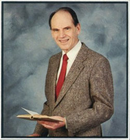
"Fasting is important---more important, perhaps, than many of us have supposed, as I trust this book will reveal...when exercised with a pure heart, and a right motive, fasting may provide us with a key to unlock doors where other keys have failed; a window opening up new horizons in the unseen world; a spiritual weapon of God's providing, "mighty to the pulling down of strongholds.' May God use this book to awaken many of his people to all the spiritual possibilities latent in the fast that God has chosen." -Arthur Wallis
FASTING
Excerpts og notes from
“God’s Chosen Fast” by Arthur Wallis
From the beginning, people have pursued God. They wrongly built the tower of Babel to reach Him (Gen. 11:1-9). They rebelliously carved images to please God. They arrogantly conceived and lived by legalistic laws to impress God. They constructed monasteries and isolated themselves to please God. As we shall see, they even fasted wrongly in an attempt to divert His attention from other things they should have been doing, but were neglecting.
It’s important to note that religious practices such as fasting are less important than doing God’s will. As Micah 6:8 points out, what the Lord truly requires of us is devotion to Himself: “To do justly, to love mercy, and to walk humbly with your God.”
This lesson will address three biblical fasts: Normal, Absolute & Partial.
I. THE NORMAL FAST: He fasted forty days and forty nights and afterward he was hungry—Matthew 4:2.
“To fast,” we are told, “is not simply nor necessarily to abstain from food anything that hinders our communion with God.” Or they say, “Fasting means to do without, to practice self-denial.” We have only to widen the meaning enough and the cutting edge has gone.
It is true that there are many things besides food that may hinder our communion with God. It is also true that we need to practice self-denial in general. The fact still remains that “to fast” means primarily “not to eat.” We are told that “he ate nothing” (Luke 4:2), but not that He drank nothing. Afterwards it says “he was hungry,” but not that He was thirsty. Though thirst pangs are more intense than those of hunger, Satan tempted Him to eat, but not to drink. This all suggests that the fast was an abstaining from food, but not from water. In fact, the human body could not survive forty days without water apart from being supernaturally sustained. The normal fast, then involved abstaining from all forms of food, but not from water, and must be distinguished from the other two forms, the absolute fast and the partial fast, which we must now consider.
2. THE ABSOLUTE FAST: for three days he . . . neither ate nor drank—Acts 9:9
There are a few examples in Scripture of what “the absolute fast” is called, that is, abstaining from drinking as well as eating. Normally this was never more that three days, probably because any longer period might have proved physically injurious. The body can go long periods without food and be physically benefited, but only for a very short time without water.
Ezra spent the night, “neither eating bread nor drinking water; for he was mourning over the faithlessness of the exiles” (Ezra 10:6).
Ezra 9:3 Esther 4:16 Acts 9:9
There are examples in Scripture of absolute fasts which must have been supernatural in character because of their very long duration. For two separate periods of forty days and forty nights Moses was in the presence of God, neither eating nor drinking. (Deut. 9:9, 18; Exod.34:28). The first occasion was when he received the Ten Commandments from God. The second was immediately following, after discovering the people were worshipping the golden calf and so had broken the law even before they had formally received it. These two fasts were undertaken virtually with intermission, and taken together constitute what is certainly the longest fast in the Bible, eighty days without food or water.
The Journey of Elijah to Horeb appears to have been undertaken during an absolute fast. If so, it must have been supernatural. Under the juniper tree, where he was sleeping after escaping from jezebel, he was awakened by and angel who provided him with freshly baked cake and a cruse of water. Twice he was told to eat and drink, and then he “went in the strength of that food forty days and forty nights to Horeb the mount of God” (1Kings 19:8).
3. THE PARTIAL FAST: I ate no delicacies, no meat or wine entered my mouth— Daniel 10:3
The emphasis here is upon restriction of diet rather than complete abstention. At the commencement of the book of Daniel we are introduced to this young man and his three companions. They had been selected from among the Hebrew exiles because of noble birth and intellectual attainments for special training, with a view to serving in the presence of the king of Babylon.
These men resolved not to defile themselves with the king’s rich food or the wine which he drank, as these would have been first offered to the Babylonian gods. Instead they asked for vegetables to eat and water to drink. The steward set over them agreed to test the effect of this simple diet for a period of ten days. At the end of this time “they were better in appearance and fatter in flesh than all the youths who ate the king’s rich food” (Dan. 1:15).
The value of the partial fast, however, is not confined by any means to the physical. Later in the book of Daniel we read how this prophet received a revelation from God concerning the future of his people Israel. He describes how he sought the Lord for understanding of this vision: In those days I, Daniel, was mourning for three weeks. I ate no delicacies, no meat or wine entered my mouth, nor did I anoint myself at all, for the full three weeks” (Dan. 10:2, 3).
4. “WHEN”—NOT “IF” NOT: When you give alms . . . when you pray . . . when you fast—Matthew 6:2, 4, and 16.
5. THE TIME IS NOW: When the bridegroom is taken from them ... then they will fast—Matthew 9:15.
6. THE REGULAR AND PUBLIC FASTS: On a fast day . . . you shall read the words of the Lord—Jeremiah 36:6.
Sanctify a fast; call a solemn assembly—Joel 2:15.
The Day of Atonement, on which God had said that every Israelite was to afflict himself were: (Lev. 23:27; Psa. 35:13 & Isa. 58:5).
7. FASTING UNTO GOD: When ye fasted . . . did ye at all fast unto me, even to me?—Zechariah 7:5.
They ministered to the Lord, and fasted – Acts 13:2. Fasting must be done unto God.
8. FOR PERSONAL SANCTITY: I humbled my soul with fasting – Psalm 69:10. Blessed are those who mourn – Matthew 5:4
9. TO BE HEARD ON HIGH: S we fasted and besought our God for this, and he listened to our entreaty – Ezra 8:23.
10. TO CHANGE GOD’S MIND: The people of Nineveh believed God; they proclaimed a fast. . . . When God saw what they did . . . God repented of the evil which he had said he would do to them – Jonah 3:5, 10.
11. TO FREE THE CAPTIVES: Is not this the fast that I choose: to loose the bonds of wickedness, to undo the thongs of the yoke, to let the oppressed go free, and to break every yoke? – Isaiah 58:6.
12. THE FASTED TO DELIVER: Can the prey be taken from the mighty, or the captives a tyrant be rescued? Surely, thus says the Lord: Even the captives of the mighty shall be taken, and the prey of the tyrant be rescued, for I will contend with those who contend with you. Isaiah 49:24, 25.
13. FOR REVELATION: Daniel . . . turned my face to the Lord God, seeking him by prayer Supplications with fasting. . . . Gabriel . . . said to me, O Daniel, I have now come to give you wisdom and understanding – Daniel 9:2, 3 21, 22.
"God's Chosen Fast": © Arthur Wallis 1968
To see price and additional information, including how to purchase the complete book click: http://www.christianbook.com/Christian/Books/product?sku=WW085547&event=AFF&p=1162786%22
This book covers a lot of what the Bible teaches about Fasting; both in the Old and New Testaments. It talks about what happens when you fast, both spiritually and physically. It talks about the correct way to "break" a fast. The book also includes a Diary of a twenty-one day fast.



